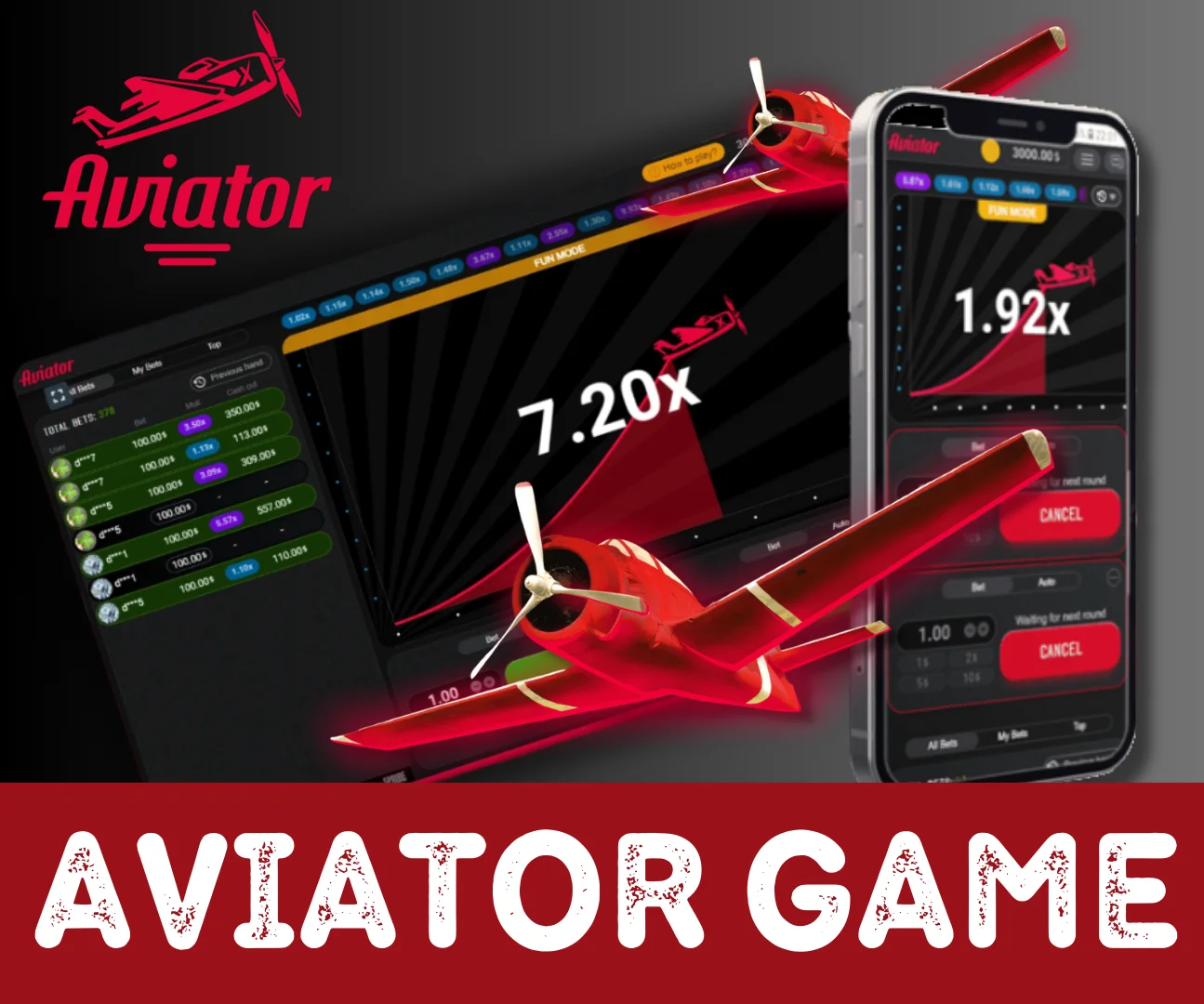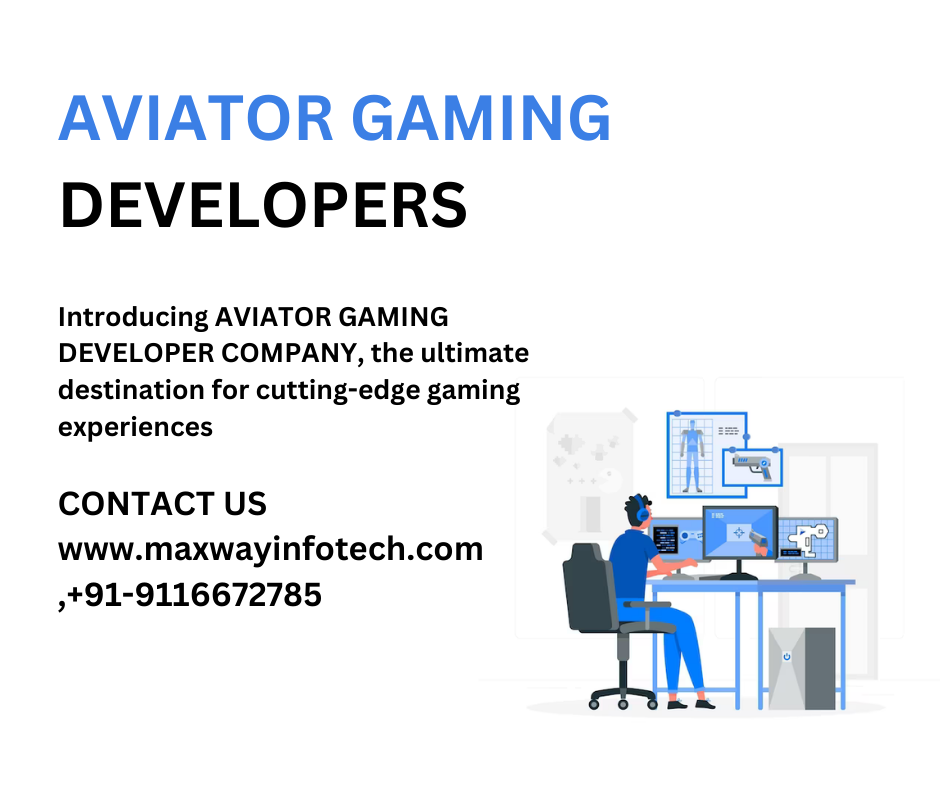Top Aviator Game Developers For Online Casinos
Top Aviator Game Developers For Online Casinos: Maxway Infotech

Top Aviator Game Developers for Online Casinos
The online casino industry has seen a significant transformation over the past few years, with innovative games capturing the attention of players worldwide. Among these, the Aviator game has emerged as a popular choice, combining simplicity with the thrill of risk and reward. This game allows players to place bets on a virtual plane that takes off and ascends, with the potential for multiplying their stakes before the plane flies away. As demand for this engaging game grows, several developers have established themselves as leaders in creating high-quality Aviator games for online casinos. In this blog, we will explore some of the top aviator game developers that are making waves in the industry.
1. Maxway Infotech
Maxway Infotech is a well-known name in the online gaming industry, recognized for its innovative approach to game development. The company specializes in creating engaging and interactive games, including the popular Aviator game. Maxway Infotech version of Aviator features stunning graphics, smooth gameplay, and an intuitive user interface that enhances player experience.
One of the standout features of Maxway Infotech Aviator game is its unique multiplier system, which allows players to cash out at any point before the plane flies away. This adds an exciting layer of strategy and anticipation, making it a hit among players in various online casinos.
2. Betsoft Gaming
Betsoft Gaming is renowned for its high-quality 3D animated games and has made significant strides in the online casino market. Their Aviator game showcases impressive graphics and immersive gameplay that captures players’ attention from the moment they enter the virtual casino. Betsoft’s commitment to innovation is evident in their Aviator game design, which includes dynamic animations and sound effects that enhance the overall gaming experience. Additionally, their focus on mobile compatibility ensures that players can enjoy the Aviator game on various devices without compromising quality.
3. Pragmatic Play
Pragmatic Play is a leading content provider in the gaming industry, known for its diverse portfolio of games, including slots, live casino games, and innovative titles like Aviator. Their version of the Aviator game combines high-quality graphics with engaging gameplay mechanics that appeal to a broad audience.Pragmatic Play’s Aviator features a user-friendly interface that makes it easy for new players to understand the rules while providing advanced options for seasoned gamers. The developer also emphasizes responsible gaming practices, ensuring a safe environment for all players.
4. Evolution Gaming
Evolution Gaming is synonymous with live casino experiences but has also ventured into innovative game development with titles like Aviator. Their approach combines traditional casino elements with modern technology to create an interactive gaming experience.Evolution’s Aviator game stands out due to its live-streamed format, allowing players to interact with real dealers while enjoying the excitement of betting on a virtual plane’s ascent. This unique blend of live gaming and traditional mechanics sets Evolution apart from other developers in the space.
5. Red Tiger Gaming
Red Tiger Gaming, part of NetEnt, has gained recognition for its commitment to quality and innovation in game design. Their Aviator game offers an exciting twist on traditional betting mechanics, featuring vibrant graphics and engaging animations that keep players entertained.
Red Tiger’s focus on player engagement is evident in their gamification elements, such as daily jackpots and tournaments associated with their Aviator game. These features encourage player loyalty and enhance the overall gaming experience.
Why Choose These Developers?
When selecting an aviator game developer for online casinos, several factors come into play:
- Quality of Graphics and Gameplay: The visual appeal and smoothness of gameplay are crucial for attracting and retaining players.
- Innovative Features: Unique mechanics and engaging features can set a game apart from competitors.
- Mobile Compatibility: With many players accessing games via mobile devices, ensuring compatibility across platforms is essential.
- Reputation and Trustworthiness: Partnering with reputable developers ensures that you are offering reliable and fair gaming experiences to your customers.
- Support and Updates: Ongoing support and regular updates are vital for maintaining player interest and addressing any issues that arise post-launch.
Conclusion
The popularity of aviator games in online casinos continues to rise as players seek thrilling experiences that combine strategy with entertainment. Developers like Spribe, Betsoft Gaming, Pragmatic Play, Evolution Gaming, and Red Tiger Gaming are leading the charge by creating high-quality aviator games that captivate audiences worldwide.By choosing one of these top aviator game developers, online casinos can provide their players with engaging experiences that keep them coming back for more. As technology continues to evolve within the gaming industry, these developers will undoubtedly remain at the forefront of innovation in aviator game design. Embrace this exciting trend by partnering with expert developers who understand what it takes to create successful online casino games!



